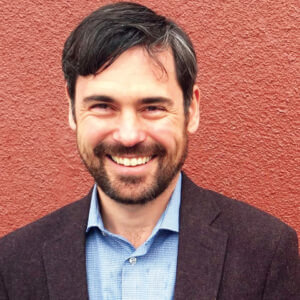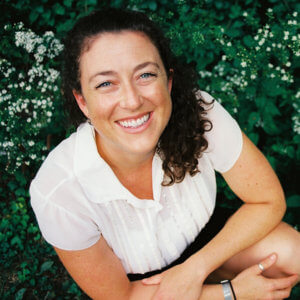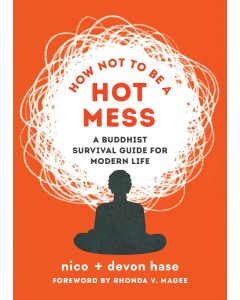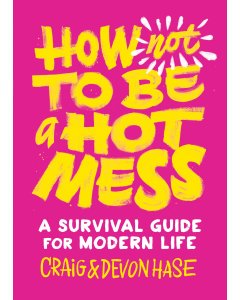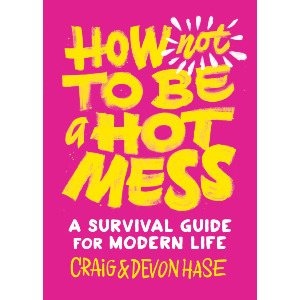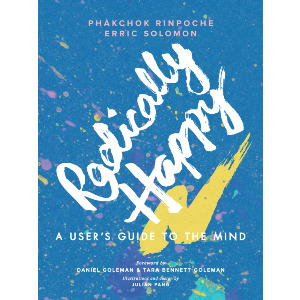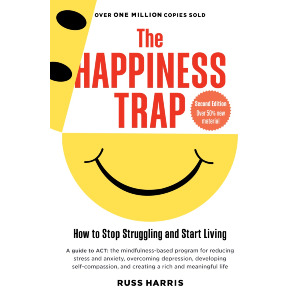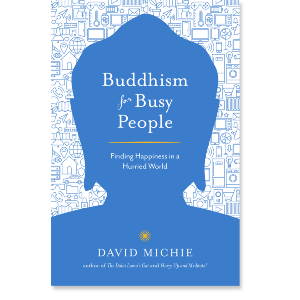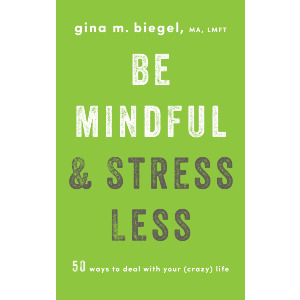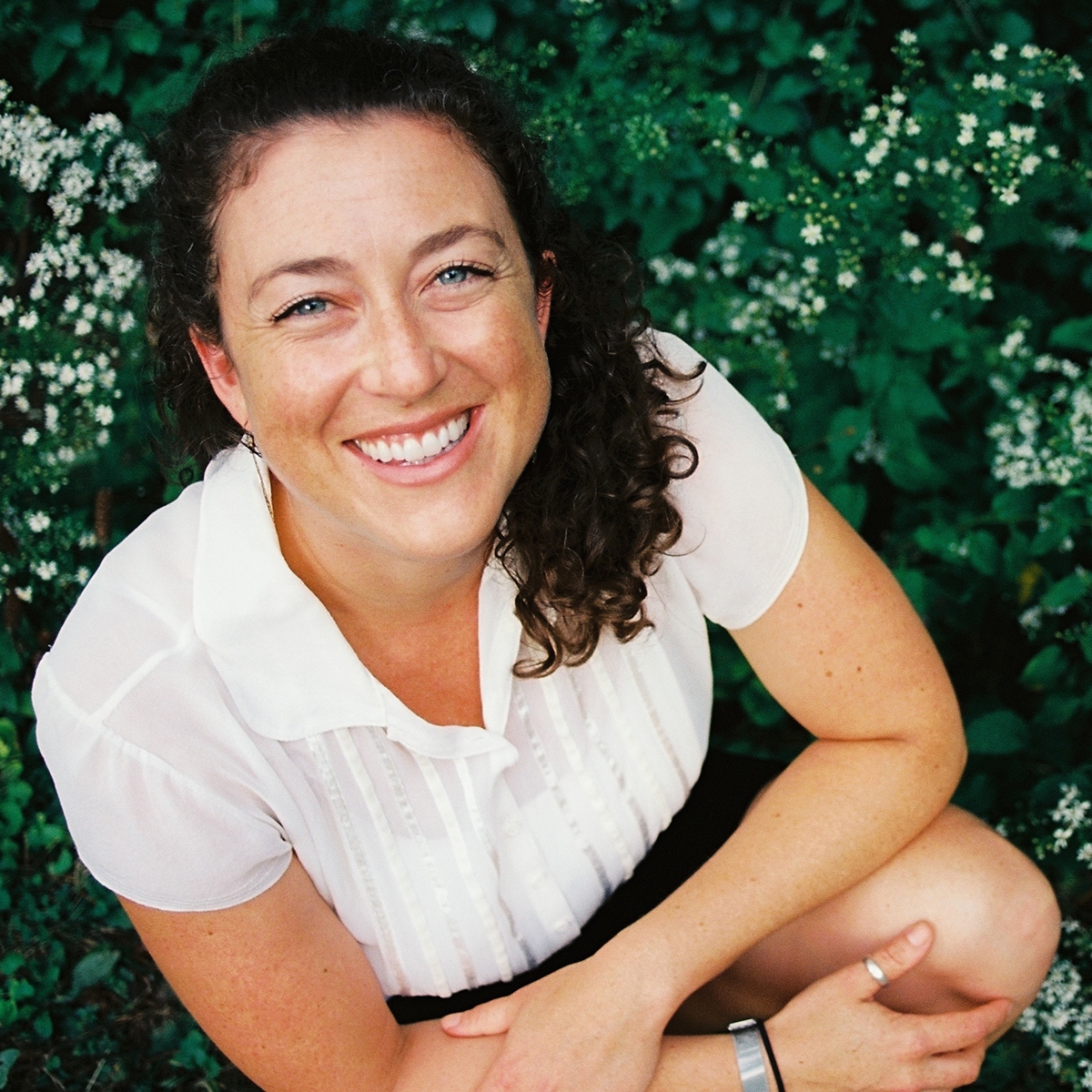

Devon Hase
Devon Hase began intensive meditation training in 2000. After spending a decade teaching English and social studies in high school and college classrooms, she entered a two-year period of retreat. She has studied at monasteries in Nepal and India, and practices in the Insight and Vajrayana traditions. Currently, Devon teaches at the Insight Meditation Society, Spirit Rock, and throughout North America and Europe. She also mentors dharma practitioners online, is a mentor in Jack Kornfield and Tara Brach’s Mindfulness Meditation Teacher Certification Program, and teaches on the Simple Habit app. Along with her life partner Nico, she co-authored their first book, How Not to Be a Hot Mess: A Survival Guide for Modern Life, which offers six really good pieces of semi-Buddhist advice to keep you anchored and steady amidst the chaos of modern life. Devon loves long retreat and is passionate about creative ways to bring depth practice into the daily spin of things. She now lives together with Nico in urban retreat in her hometown of Ashland, Oregon, splitting each week between teaching and practice. For more info visit www.devonandcraighase.com.
Devon Hase
GUIDES
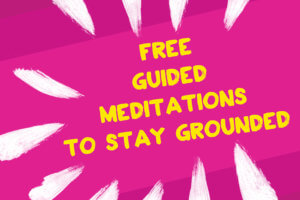
Free Download | Guided Meditations with Devon & Craig Hase
A Survival Guide for Modern Life
ENTER YOUR EMAIL TO RECEIVE THREE GUIDED VIDEO MEDITATIONS TO YOUR INBOX.
Authors of How Not to Be a Hot Mess, Craig and Devon Hase, offer a series of meditations that are short, introductory practices you can do anytime and anywhere to soothe stress and anxiety, see the good in our world, and ease uncertainty with a single breath. We hope this video series, delivered straight to your inbox, will keep you anchored and steady amidst the chaos.
Enter your email below to receive the meditation practices!
*You are agreeing to receive promotional messages from Shambhala Publications. You may unsubscribe at any time.
Share
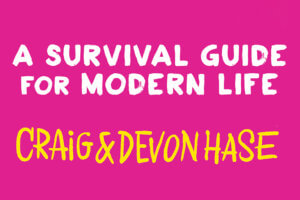
Q&A with Devon and Craig Hase of How Not to Be a Hot Mess
Craig and Devon Hase talk about how they entered into the world of meditation, why they chose to write this book, and their journey writing it together.
- How did you find your meditation practice?
Craig: Devon and I both came to meditation very young and we have our own unique stories that we tell more fully in the book. But just to touch on my own early introduction to meditation: my mom owned a bookstore, which meant I grew up reading. So when I was thirteen and fourteen, I read a lot of the beat poets and novelists, and that got me interested in meditation. Then, when I was fifteen years old, I read Insight Meditation by Joseph Goldstein. And that was it for me. I was hooked. It’s hard to say exactly why. But I think it was because Joseph finally told me exactly what the problem was. He told me about suffering, the cause of suffering, the possibility of freedom from suffering, and then he told me about an actual path that could lead me out of suffering. So I sat down and started meditating alone in my room in the suburbs of New York City. This was 1994. Nobody I knew was meditating. But I was determined. And so when I ran into problems, when I essentially couldn’t do it, I went out and found myself a teacher, and I did my first weekend retreat a few weeks before my seventeenth birthday. Many retreats followed, until I ended up living in a monastery for a bunch of years in my twenties. And these days I still find myself as fascinated as ever by meditation and the possibilities of a life free of unnecessary suffering.
2. Why was it important for you to write How Not to Be a Hot Mess?
Devon: In the spring of 2017, Craig taught a class at the University of Wisconsin-Madison called “Psychology of Mindfulness.” I often came in as a guest teacher, along with Richard Davidson, John Dunne, Cortland Dahl, and Daniela Labra. We all noticed two things. First, that something incredibly special was happening in that classroom: there was a sense of community that’s so rare in academic settings, a sense of radical authenticity and almost family-like support. The meditation practice really brought everybody together. The second thing we all noticed—and that we’ve all noticed in other classes we’ve taught—was that the anxiety levels of undergrads was through the roof. Mindfulness, of course, can help with anxiety. And so we kick off How Not to Be a Hot Mess with a chapter on what makes meditation so powerful. But, as we say in the book, mindfulness alone is not enough. Because our lives are complex, because people—especially young people—are struggling with issues that can’t be resolved simply by training attention. And so what we talk about in the book is bringing a whole cloth approach to our lives, using mindfulness in order to look at our lives, look closely, and see who we want to be and how we want to act. That, we think, is where real transformation happens.
3. Why did you write it together?
Craig: Well, we really like each other, for one thing. And we teach a lot together. So it seemed like the most natural thing to write the book together. I think, actually, that we balance each other, that our perspectives, as maybe you’ll see in the book, complement one another. We’re writing from our authentic take on the world, based on both our shared and our unique experiences. So I can write about almost getting into a fistfight at a Zen monastery, as I do in the Don’t Be a Jerk chapter, and Devon can deconstruct the patriarchy, as she so beautifully does in the chapter Make Sex Good. And what the reader ends up getting, we hope, is variations on some important themes, based on our own identities, our own shared and disparate contexts, and our perspectives and experiences.
4. We’ve read how Urban Dictionary defines “hot mess,” but what does it mean to you?
Devon: Glad we get to address this question because we love our title, but we also had one concern: that the term “hot mess” can have a somewhat misogynistic flavor in the way some people use it. So part of what we wanted to do was reclaim that, to say, “No, hot mess can apply to men, to women, to folks who are gender non-conforming.” And, in fact, we’ve all had hot mess moments, moments when we felt, as we say in the book, “blinded by the blizzard of information, the hurricane of stimulation, the typhoon of opinions and judgments and how-tos and must-dos.” In other words, moments when we’re overwhelmed, confused, and a little crazy. The point of the book, actually, is to help people locate themselves in a set of values that are kind of unshakeable, so that, even if everything shakes around you, you know exactly who you are, what you want in life, and you can then, moment by moment, live your way into answers to the questions that aren’t so easy to resolve.
5. When was your last “hot mess” moment, and what helped you get through it?
Craig: Writing this book! We wrote this book at a crazy time in our lives. Devon was working three wonderful gig economy-type jobs: she was coaching meditators on the Ten Percent Happier App, writing a meditation curriculum for the Healthy Minds Initiative at the University of Wisconsin-Madison, and mentoring meditation teachers for Jack Kornfield and Tara Brach’s Mindfulness Meditation Teacher Training Program. Meanwhile, I was smack in the last year of my PhD in counseling psychology, working 40 hours a week as a psychology intern, flying between O’ahu and Moloka’i in Hawai’i, still recording meditations for the Simple Habit app, and writing, writing, writing. So it was a little much. I won’t speak for Devon here, but I had some moments when my head felt like it was spinning like a top. What helped me through it was, unsurprisingly, exactly what we write about in the book. First, calming the mind through meditation: just bringing my attention to my breath, letting go of the spinning thoughts, returning to the present. Then, from there, remembering my intentions, remembering who I want to be, what I want to contribute, what my life is about. When I could do that, the busyness didn’t seem so bad—it could even be inspiring.
6. The book is broken up into six sections: Meditate, Don’t Be a Jerk, Give a Little, Say What’s True, Make Sex Good, and Stay Clear. Why did you choose to break up the book this way, and what is key about these six things?
Devon: We think of these as six quintessential pieces of semi-Buddhist advice. Semi because we’re not going into all the complexities and doctrinal justifications, because we’re keeping it open and accessible to anyone who might benefit. But still Buddhist because each piece of advice is drawn directly from the Buddhist tradition. So we start with meditate because mindfulness is a way to steady the turbulence of your mind. But we also say that mindfulness alone can never stand up to the big crazy that is contemporary life—you’ll also need to look at your thoughts, your speech, your actions, all of it. And so the next five chapters, which we take from the Buddhist trainings in conduct (i.e. the precepts) take the reader step-by-step through the ways that non-harming, generosity, wise speech, embodied sexuality, and a balanced relationship to intoxicants might contribute to feeling more-or-less stable and sane even as the world spins off its axis all around you.
7. What books are currently on your nightstand?
Craig: On my side of the bed: Ethics for a New Millennium by H. H. the Fourteenth Dalai Lama, all three volumes of Longchenpa’s Trilogy of Rest, and In Love with the World, by Mingyur Rinpoche and Helen Tworkov. On Devon’s side of the bed: Everything is Connected by Jason Gruhl, When Awareness Becomes Natural by Sayadaw U Tejaniya, Elizabeth Callahan’s translation of Moonbeams of Mahāmudrā, and One Dharma by Joseph Goldstein. Yes, we are ridiculously nerdy Buddhists.
8. What is your best advice for someone who is trying to overcome their stressed out, overworked, burned out existence?
Devon: You mean, besides “read this book?” No, just kidding. (Well, not really.) I’d say the best advice I’d give someone is: relax. Really, just relax. Yes, meditate. Of course, meditation is key. But above all else, relax. For instance, if you’re sitting down to meditate, you could just relax the mind. You’ve made it to the cushion (or the chair, or the mat you’re lying on), you did all the work you need to do. Meditation is just the lightest touch of awareness, and awareness itself is natural, it just happens all on its own. And then once you’ve established a little steadiness in meditation, then make sure the life you’re living is the one you want—start to check in on who you’re being in your days. Are you speaking in ways that create harmony and connection for you? Are your actions bringing peace of mind? These are the kinds of things we talk about in the book, and I think they’re really the most important thing if you want to live a life that feels stable and sane in the middle of everything.
Share
Related Books
